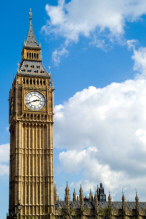Late nights and early mornings
 The regulations covering the late night levy and early morning restriction orders have finally been published. Andy Grimsey reviews what they say.
The regulations covering the late night levy and early morning restriction orders have finally been published. Andy Grimsey reviews what they say.
Regulations relating to the Late Night Levy and Early Morning Restriction Orders have been published to come into force on 31 October 2012.
The Late Night Levy (Expenses, Exemptions and Reductions) Regulations 2012 provide confirmation of the exemption and reduction categories permitted where a levy is applied in a Licensing Authority area.
There are no real surprises on the exemption categories:
- Hotels (for residents staying at the hotel and only for consumption on the premises);
- Theatres (for ticket holders, performers or staff, or guests to private events);
- Cinemas (for ticket holders or guests invited to a private event);
- Bingo halls;
- Community amateur sports clubs;
- Community premises;
- Public houses entitled to rural rate relief;
- Participants in business improvement districts (BIDs) but only BIDs which are established for 'relevant purposes'. This would require one of the purposes of the BID to result in, or likely be to result in, the reduction or prevention of crime and disorder in connection with the supply of alcohol between midnight and 6am;
- Licensed premises which supply alcohol in the early hours on New Year's Eve (but at no other time).
The Licensing Authority has full discretion whether to exempt any or all of the above categories, or to require such Licence Holders to pay the Levy.
So far as permitted reduction categories go, any 'relevant arrangement' which is established for relevant purposes (see above), requires its members to take steps to promote those relevant purposes, and contains provision for the cessation of the membership of a member who has failed to take those steps will be entitled to a reduction if the Licensing Authority so chooses.
This means that active members of Pubwatch, Best Bar None and similar best practice schemes can hope to achieve a reduction of 30% in the Levy amount, if the Licensing Authority imposes a levy and chooses to exercise its discretion to apply such a reduction.
Therefore BIDs , Best Bar None, Pubwatch and other such schemes may need to consider and possibly amend their existing constitutions to ensure that they comply with the crime and disorder purpose - either to qualify for an exemption (BIDs) or a reduction (other schemes).
The 30% is a fixed amount - this will mean that Licence Holders will only have to be a member of one of their Licensing Authority's preferred best practice schemes to benefit from a full 30% reduction (although there may of course be good reasons to remain members of other schemes).
The other permitted reduction category is certain licensed premises which are entitled to small business rate relief. A Licence Holder who is entitled to small business rate relief and is a member of a preferred best practice scheme will still only benefit from a 30% reduction.
The Licensing Act 2003 (Early Morning Alcohol Restriction Orders) Regulations 2012 confirm that where a Licensing Authority proposes to make an EMRO it must allow a minimum period of 42 days for representations to be made. It must also advertise its proposal on its website, on a notice 'in the area which will be affected by the EMRO and in a manner which is likely to bring the proposal to the attention of persons who have an interest in it', in a local newspaper (although this could be on the 41st day) and by sending a letter to all Premises Licence Holders, Club Premises Certificate Holders and holders of Temporary Event Notices who may be affected by the EMRO.
Interestingly, although normally licensing hearings are expected to occur on consecutive days the existing Hearings Regulations have been amended to allow Licensing Authorities to adjourn a hearing to consider any representations made by a party to the hearing or in the public interest. At the end of the hearing for an EMRO the Authority must make its decision within 10 working days. The hearing itself must commence no later than 30 working days after the 42 day representation period has ended.
The Licensing Authority must, no later than 7 days after making its decision send a copy of the EMRO to all Licence Holders affected by the decision and by publishing the EMRO on its website and in the EMRO area.
The following types of premises will not be subject to an EMRO if it applies:
- Hotels and comparable premises (i.e. guests houses, lodging houses or hostels) where, during the hours of midnight to 6am sales of alcohol can only be made to persons staying at the premises for consumption in their rooms either by room service or by virtue of mini bars.
- Licensed premises which supply alcohol in the early hours only on New Year's Day.
The Regulations can be found here and here.
Andy Grimsey is a Solicitor at Poppleston Allen. He can be contacted by This email address is being protected from spambots. You need JavaScript enabled to view it..